#menopause therapy
Text
Embracing Change with Menopause Wellness
Menopause is a natural phase in a woman's life that brings significant changes. At The Enhancement of Life Center in San Antonio, TX, we understand these changes and offer comprehensive menopause wellness programs. Our approach combines traditional medicine with integrative therapies to address the unique needs of each woman.

Many women experience symptoms like hot flashes, night sweats, mood swings, and sleep disturbances during menopause. These symptoms can impact daily life and overall well-being. We believe in empowering women with knowledge and effective treatments to navigate this transition smoothly.
Our menopause wellness programs start with a thorough assessment of each patient's health, symptoms, and lifestyle. We use advanced diagnostic tools to understand hormone levels and overall health status. This information helps us create a personalized treatment plan.
One of our key offerings is natural hormone therapy using bio-identical hormones. These hormones are structurally identical to those produced by the body, offering a more natural approach to hormone balance. We often use hormone pellet therapy, a method that provides consistent hormone release over time.
Beyond hormone therapy, we focus on overall wellness. Our programs include nutritional guidance, exercise recommendations, and stress management techniques. We believe that a holistic approach leads to better outcomes and improved quality of life.
We also offer innovative weight loss programs, recognizing that weight management can be challenging during menopause. Our strategies are tailored to address the unique metabolic changes that occur during this time.
At The Enhancement of Life Center, we're committed to helping women thrive during menopause. We provide education about the changes happening in the body and offer support throughout the journey. Our team stays up-to-date with the latest research and treatments in menopause care.
Every woman's experience with menopause is unique, and we honor that individuality in our approach. We're here to listen, support, and provide effective solutions. If you're navigating menopause and seeking wellness, we invite you to connect with us. Let's work together to make this transition a positive and empowering experience. Browse our website to learn more at: https://antiagingsa.com.
0 notes
Text
Spectrum Wellness Weight Loss & Anti-Aging

Introducing a groundbreaking advancement in weight management, energy enhancement, and holistic wellness. Our cutting-edge approach integrates the transformative power of infrared technology and grounding methods to facilitate weight loss, cellular restructuring, and anti-aging benefits. Experience a revolution in wellness with our innovative therapies, empowering you to take control of your health journey like never before.
Contact Info-
Spectrum Wellness Weight Loss & Anti-Aging
Address- 16480 Bake Pkwy, Irvine, CA, USA 92618
Phone- +1 (949) 373-3100
Business Email- [email protected]
Website- https://www.spectrumwellnessoc.com/
Business Hours- Mon - Fri: 9AM - 5PM.
Payment Methods- all types of payment.
Year Est.- 2000
Contact Name- Darci Collins.
Follow On:
Facebook- https://www.facebook.com/spectrumwellnessoc/
Instagram- https://www.instagram.com/spectrumwellnesssolutions/
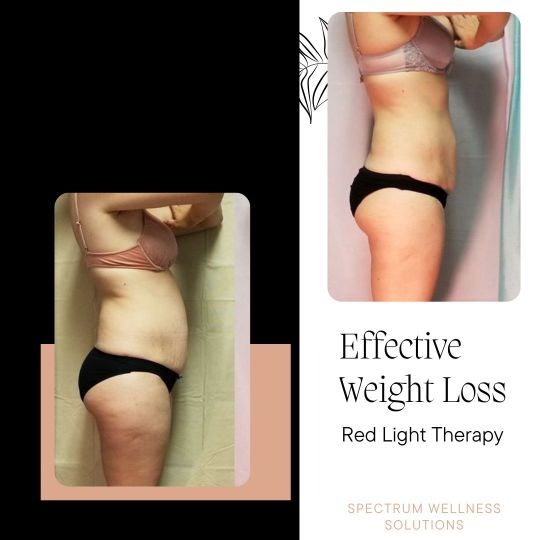
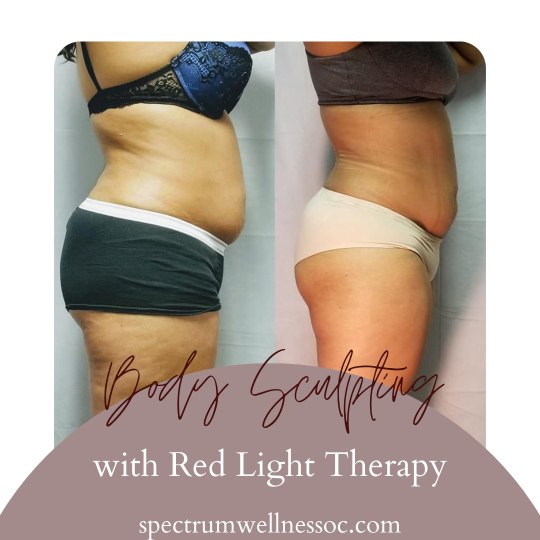
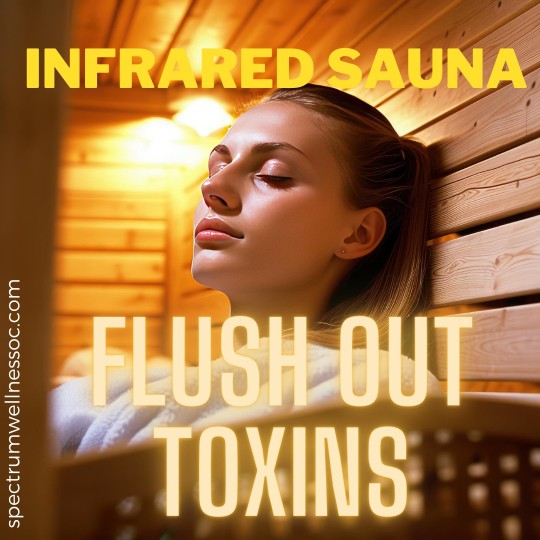

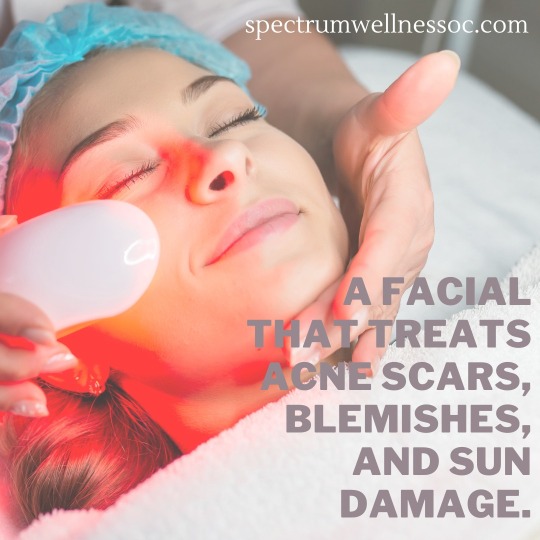
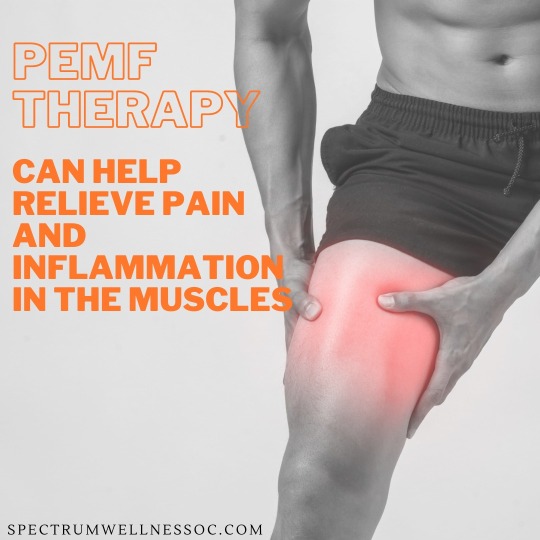

1 note
·
View note
Text
My gender? Oh, I'm ASAC (assigned soprano at choir)
#not planning on transitioning unless hormone therapy (i.e. menopause) eventually lowers my voice#gender of the day
26 notes
·
View notes
Text
IS YOU SAY DADDY'S HOMEEEEEEEEEE



#no one can know hes who i think about when i listen to bad bunny and lana del rey and the weeknd#HES SOOOOOOOOOOOOO#i dont need therapy i need his balls slapping against my chi- [GUNSHOTS]#need him in a way that wouldve had me lobotomized in the 30s#a desire that could only be matched by whatever queen victoria had for her cousin#'his womb is probably barren' WELL I FUCKS WITH MENOPAUSE 🔥🔥🔥🔥🔥🔥🔥🔥🔥🔥🔥🔥🔥🔥#charlie day#charlie kelly#iasip#lupin talks#newton geiszler
68 notes
·
View notes
Text
Big thanks to my trans women friends, now I can't think of my hormone replacement therapy pills as anything other than "titty skittles". 💊
#mother witch ramblings#lorelei's life of chaos#hormone replacement therapy#early menopause#prematurely menopausal
31 notes
·
View notes
Text
Fun fact not all problems are the patriarchy
#there's a shortage of menopause hormone treatment in nz#and people on my medical Facebook page are saying 'this wouldn't happen to something men take'#and I'm like ...yes it would? i am aware of approximately 8 medications that are in short supply atm this is just the one that affects you#dulaglutide (diabetes) is not in short supply because of the patriarchy! it's in short supply because it's a tiktok weight loss fad!#this is also a problem! but yeah you can't blame the patriarchy for everything#(hormone therapy is in short supply because there's been a couple of very good documentaries lately that have made it more popular#and the manufacturers haven't caught up yet#it's not great but it's also not because it's a thing that only affects women)
3 notes
·
View notes
Photo

Vessels and Bones
Did you know that the menopause increases a woman’s risk of developing osteoporosis? Usually the hormone oestrogen protects female bones and crucially the blood vessels within them. At menopause, those hormone levels drop dramatically, accelerating bone loss and fragility. The fat cells surrounding blood vessels also cease to be broken down, no longer efficiently fuelling vessel growth. Researchers revealed that low oestrogen levels in postmenopausal mice created a build-up of a toxic substance called lipase peroxide. This impedes their ability to form the vital blood vessels which support bone formation. But they were able to repair some of this damage using a drug called Liproxstatin (right) which broke down the fat cells (green) and increased the blood vessels inside the bone (red) compared to mice with low oestrogen levels (left). Targeting the build-up of lipase peroxide is a promising alternative to oestrogen hormone replacement therapy which has its own side effects.
Read more about this research from the MRC LMS here
Written by Sophie Arthur
Image from work by Julia Rodrigues and colleagues
MRC London Institute of Medical Sciences, Imperial College London, London, UK
Image originally published with a Creative Commons Attribution 4.0 International (CC BY 4.0)
Published in Nature Cardiovascular Research, October 2022
You can also follow BPoD on Instagram, Twitter and Facebook
#science#biomedicine#blood vessels#estrogen#oestrogen#menopause#pregnancy#osteoporosis#hrt#hormone replacement therapy#bones#bone health#immunofluorescence#immunohistochemistry#fat cells#lipids
10 notes
·
View notes
Text
Red Clover: A Natural Ally for Navigating the Menopausal Journey
Menopause, that inevitable chapter in every woman’s life, often ushers in a wave of physical and emotional changes that can feel like navigating a stormy sea. Hot flashes that leave you drenched in sweat, sleepless nights that leave you feeling foggy, mood swings that feel like an emotional rollercoaster – these are just a few of the challenges that menopausal women face. While hormone…
0 notes
Text
Menopause Wellness: Embracing Change and Thriving
Menopause is a significant transition in a woman's life, marking the end of her reproductive years. While this natural process is a normal part of aging, it can bring a range of physical and emotional symptoms that can impact quality of life. At The Enhancement of Life Center, we understand the challenges that women face during menopause and offer comprehensive menopause wellness programs to support their health and well-being.

The symptoms of menopause can vary from woman to woman, but common experiences include hot flashes, night sweats, mood changes, vaginal dryness, sleep disturbances, and weight gain. These symptoms can be disruptive and affect a woman's daily life, relationships, and overall sense of well-being.
Our team of compassionate healthcare professionals recognizes the importance of addressing menopause symptoms in a holistic manner. We take a personalized approach to menopause wellness, combining the best of traditional medicine and integrative medicine to develop individualized treatment plans that meet each patient's unique needs.
Hormone therapy is a key component of our menopause wellness programs. We utilize natural bio-identical hormones to restore hormonal balance and alleviate symptoms. Our team carefully assesses each patient's hormonal profile and develops a customized treatment plan to optimize results and minimize potential risks.
In addition to hormone therapy, we also provide guidance on lifestyle modifications that can support menopause wellness. This may include recommendations for diet, exercise, stress management, and self-care practices. By addressing these factors, women can further enhance their health and well-being during this transitional period.
At The Enhancement of Life Center, we believe that menopause is not the end, but rather the beginning of a new chapter in a woman's life. Our goal is to empower women to embrace this change and thrive. We provide the support, education, and resources necessary to help women navigate menopause with confidence and ease.
If you're a woman experiencing symptoms of menopause, know that you are not alone. The Enhancement of Life Center is here to help you optimize your health, reclaim your vitality, and enjoy a fulfilling life during this transformative time. Contact us today at: https://antiagingsa.com to learn more about our menopause wellness programs and take the first step towards embracing change and thriving.
0 notes
Text
#menopause and hormone replacement therapy#menopause specialist nyc#menopause doctor nyc#weight gain#weight gain women#weight gain midsection women#middle aged women weight gain
0 notes
Text
Hair Loss During Postpartum Period: Why It Happens & What You Can Do
Congratulations on your new baby. However, amidst daily work, you might notice something unsettling- Hair loss during postpartum period. It is called postpartum hair loss, but temporary.
When it comes to the reason behind this postpartum hair loss, it is due to the estrogen levels dropping after childbirth. The hormone is responsible for keeping your hair follicles in a constant growth phase. A dropped level of estrogen triggers a large number of hair follicles to prematurely enter the resting phase, leading to shedding after a few months.
Many new moms experience Hair loss during postpartum period. It typically starts around 3 to 4 months after childbirth. Don’t panic. It's perfectly normal. Your hair follicles haven't forgotten how to grow and your hair growth cycle will return to normal. However, if your hair does not regain after one year, consult with your dermatologist.
Tips For Managing Your Hair Loss During Postpartum Period:

You can't prevent postpartum shedding, but you can manage your hair loss. Here are some helpful tips:
Gentle Handling- Don’t be so harsh with your hair. Try to avoid harsh styling techniques like tight braids, excessive heat styling, or chemical treatments. Use a wide-tooth comb and air-drying if possible.
Nourish from Within- Include a healthy diet rich in essential vitamins and minerals and drink plenty of water throughout the day.
Stress Less. Chronic stress can exacerbate hair loss. You can also use volumizing shampoos and lighter conditioners that can add body to your hair.
When To See A Doctor For Postpartum Hair Loss?
Postpartum shedding is normal. But, when it comes to excessive hair loss beyond a year postpartum, you should consult a dermatologist. They will evaluate your hair loss and underlying medical conditions.
They also offer Platelet-rich plasma (PRP) therapy for treating hair loss, including postpartum hair loss. When PRP is injected into the scalp, these growth factors are delivered directly to hair follicles. It promotes hair growth, thickens existing hair, and potentially shortens the hair loss shedding phase. Remember, PRP treatment is a minimally invasive procedure.
By understanding the reasons behind your postpartum hair loss, you can fix this issue with confidence. However, look for an experienced and certified professional for help. When you are considering PRP treatment for your Hair loss during postpartum period, contact Toronto Beauty Clinic. Discover how our PRP treatments can revolutionize your hair game. Book your appointments now! Learn more at www.torontobeautyclinic.ca.
Resource: https://torontobeautyclinic.wordpress.com/2024/08/13/hair-loss-during-postpartum-period-why-it-happens-what-you-can-do/
#best hair treatment for alopecia#hair treatment for male pattern baldness#post hair transplant prp treatment#hair loss during postpartum period#mesotherapy for hair loss treatment#carboxy therapy for hair growth#hair treatment for receding hairline#hair fall prp treatment#post menopause hair loss
0 notes
Text
Hormone Replacement Therapy for Menopause
Menopause is a natural biological process that all women experience as they age. Understanding this transition can significantly improve the quality of life for those going through it.
Hormone replacement therapy (HRT) is a common and effective treatment option for managing menopausal symptoms. HRT involves taking synthetic versions of the hormones estrogen and progesterone to supplement the body's declining natural hormone levels. HRT can be administered in various forms, including oral pills, transdermal patches, gels, or creams.
What is Menopause?

Menopause refers to the time in a woman's life when her menstrual periods stop permanently, signifying the end of her reproductive capabilities. This usually occurs between ages 45 and 55 but can happen earlier or later.
The official diagnosis of menopause is made when a woman has not had a menstrual period for twelve consecutive months without any other medical causes for this change. It represents a significant hormonal shift within the body, particularly in estrogen and progesterone levels.
This transition doesn't happen overnight but rather progresses through several stages over months or even years. Understanding these stages helps contextualize the various symptoms that may arise during this period.
Signs and Symptoms to Watch For
As women transition through menopause, it's important to be aware of the various signs and symptoms that may arise. Recognizing these changes can help women better manage their menopausal experience and seek appropriate medical care when necessary. Some of the key signs and symptoms to watch for include:
Hot Flashes and Night Sweats
Hot flashes are sudden feelings of intense body heat, flushing, and sweating, while night sweats are hot flashes that occur during sleep, often causing women to wake up drenched in sweat.
Vaginal Dryness and Irritation
Decreasing estrogen levels can lead to thinning and drying of the vaginal walls, causing discomfort, itching, pain during intercourse, and an increased risk of urinary tract infections.
Sleep Disturbances
Menopausal women often experience difficulties falling asleep, staying asleep, or achieving restful sleep, which can be exacerbated by hormonal fluctuations.
Mood Changes
The hormonal changes of menopause can impact a woman's mood, leading to feelings of anxiety, depression, irritability, or mood swings, as well as a decline in cognitive function.
Bone Loss and Osteoporosis
Decreased estrogen levels can accelerate bone loss, putting women at a higher risk of developing osteoporosis and experiencing fractures.
Cardiovascular Risks
The hormonal changes of menopause may also increase the risk of developing cardiovascular issues, such as high blood pressure, high cholesterol, and an increased risk of heart disease.
The Stages of Menopause
The journey through menopause involves three main stages: perimenopause (the transitional period leading up to menopause), menopause (the point when menstruation ceases), and postmenopause (the years following menopause).
Perimenopause: This stage typically begins several years before menopuase when ovaries gradually start producing less estrogen. It lasts up until menopuase where hormone levels drop more rapidly causing an array of symtoms such as hot flashes or irregular periods.
Menopause: Officially diagnosed after twelve months without menstruating indicating end hormonal production from ovaries.
Postmenopause: The post-menopausal phase begins immediately after menopause continues which could last decades presenting long-term health considerations like increased osteoporosis risk.
The Benefits of HRT
The benefits of HRT for menopausal women include:
Relieving Menopausal Symptoms: HRT is highly effective in reducing the frequency and severity of hot flashes, night sweats, and other common menopausal symptoms. Many women report a significant improvement in their quality of life after starting HRT.
Protecting Bone Health: Estrogen plays a crucial role in maintaining bone density. The decline in estrogen during menopause can lead to an increased risk of osteoporosis and fractures. HRT has been shown to help preserve bone mass and reduce the risk of osteoporosis.
Reducing the Risk of Heart Disease: Some studies suggest that HRT may have a protective effect on the cardiovascular system, potentially reducing the risk of heart disease in menopausal women.
Improving Vaginal and Urinary Health: Declining estrogen levels can lead to vaginal dryness, irritation, and an increased risk of urinary tract infections. HRT can help alleviate these issues and improve overall genital and urinary tract health.
When considering HRT, it's important to consult with a trusted medical clinic to determine the appropriate treatment plan based on individual needs and health history.
#health consultant#medical clinic in greeley#spark hormone therapy#hormonal replacement#hormone replacement therapy#menopause#menopause treatment
0 notes
Text
Is Hormone Replacement Right for You? Expert Advice on Menopause Management

Menopause is a natural stage in every woman’s life, but it often comes with a mix of physical and emotional changes that can be challenging to manage. One common treatment option is hormone replacement therapy (HRT), but is it right for you? Here’s a straightforward guide to help you understand what HRT is, how it works, and whether it might be a good fit for your menopause management.
1. What Is Hormone Replacement Therapy (HRT)?
Hormone Replacement Therapy (HRT) is a treatment used to relieve symptoms of menopause by replacing hormones that the body no longer produces in sufficient amounts. These hormones typically include estrogen and progesterone. HRT aims to balance hormone levels, making the transition through menopause smoother.
2. Common Symptoms of Menopause
Before deciding if HRT is right for you, it’s important to know what symptoms menopause can bring. Common symptoms include:
Hot Flashes: Sudden sensations of warmth, frequently accompanied with sweating.
Night Sweats: Excessive sweating during sleep that can disrupt your rest.
Vaginal Dryness: Discomfort or irritation in the vaginal area.
Mood Swings: Changes in mood, including irritability or depression.
Sleep Issues: Having trouble falling and staying asleep.
3. How Does HRT Work?
HRT works by supplementing the hormones that your body is no longer producing in large quantities. Here’s a basic rundown:
Estrogen Therapy: Relieves symptoms like hot flashes and vaginal dryness.
Progesterone Therapy: Often used alongside estrogen to protect the lining of the uterus and prevent abnormal growth.
There are different forms of HRT, including pills, patches, gels, and vaginal creams. Your healthcare provider will help determine which form and dosage is best for you.
4. Benefits of HRT
For many women, HRT can provide significant relief from menopause symptoms. Benefits include:
Reduced Hot Flashes: Many women experience fewer and less severe hot flashes.
Improved Sleep: With reduced night sweats, sleep quality often improves.
Enhanced Mood: HRT can help stabilize mood swings and reduce feelings of depression.
5. Potential Risks and Considerations
While HRT can be effective, it’s not without potential risks. Some considerations include:
Increased Risk of Certain Conditions: HRT may slightly increase the risk of breast cancer, blood clots, and stroke, particularly with long-term use.
Side Effects: Some women may experience side effects like nausea, headaches, or weight gain.
Personal Health Factors: Your overall health, family history, and risk factors should be discussed with your doctor.
6. Alternatives to HRT
If HRT isn’t suitable for you, there are other ways to manage menopause symptoms:
Lifestyle Changes: Eating a balanced diet, regular exercise, and stress management techniques can alleviate some symptoms.
Non-Hormonal Medications: Certain medications can help with hot flashes and mood swings without using hormones.
Natural Remedies: Herbal supplements and alternative therapies may offer relief, though their effectiveness can vary.
For those managing conditions like PCOS, which can also impact hormone levels, seeking the best treatment for PCOS in Malad or finding the best PCOS doctors near me might be beneficial in addressing hormonal imbalances and related symptoms.
7. Consulting with a Healthcare Professional
Deciding whether HRT is right for you should involve a detailed discussion with your healthcare provider. They can assess your individual health needs, explain the benefits and risks, and help you make an informed decision based on your personal situation.
Conclusion
Hormone Replacement Therapy can be a valuable tool for managing menopause symptoms, but it’s not the only option. By understanding what HRT is, its benefits, risks, and alternatives, you can make a well-informed choice about your menopause management. If you’re considering HRT or have conditions like PCOS, consulting with healthcare professionals to explore the best treatment for PCOS in Malad and the best PCOS doctors near me can provide additional support. With the right information and care, you can navigate menopause with confidence and ease.
#Dr Shilpa#menopause hormone replacement therapy in vile parle#best treatment for pcos in Malad#best pcos doctors near me#pcos treatment for weight loss in Malad
0 notes
Text
Vitality Natural Wellness
Integrative Medicine practice specializing in BHRT, Low T Therapy, non-invasive aesthetics such as Botox and Dermal Fillers, emerging peptides and Vitamin Infusions.
1 note
·
View note
Text
#bioidentical hormone replacement therapy tampa#bhrt tampa#menopause treatment tampa#menopause specialist nyc#symptoms of menopause#bhrt and menopause
0 notes
Text
back on my bullshit (some things that people feel like they have to Just Cope With are actually treatable, go talk to your doctor about things that are a problem)
#today this goes for menopause as well as menstruation#not that i've had menopause but i've had a lot of people put of getting menopausal hormone therapy#my mother started it recently and was like ...why did i not do this sooner
5 notes
·
View notes